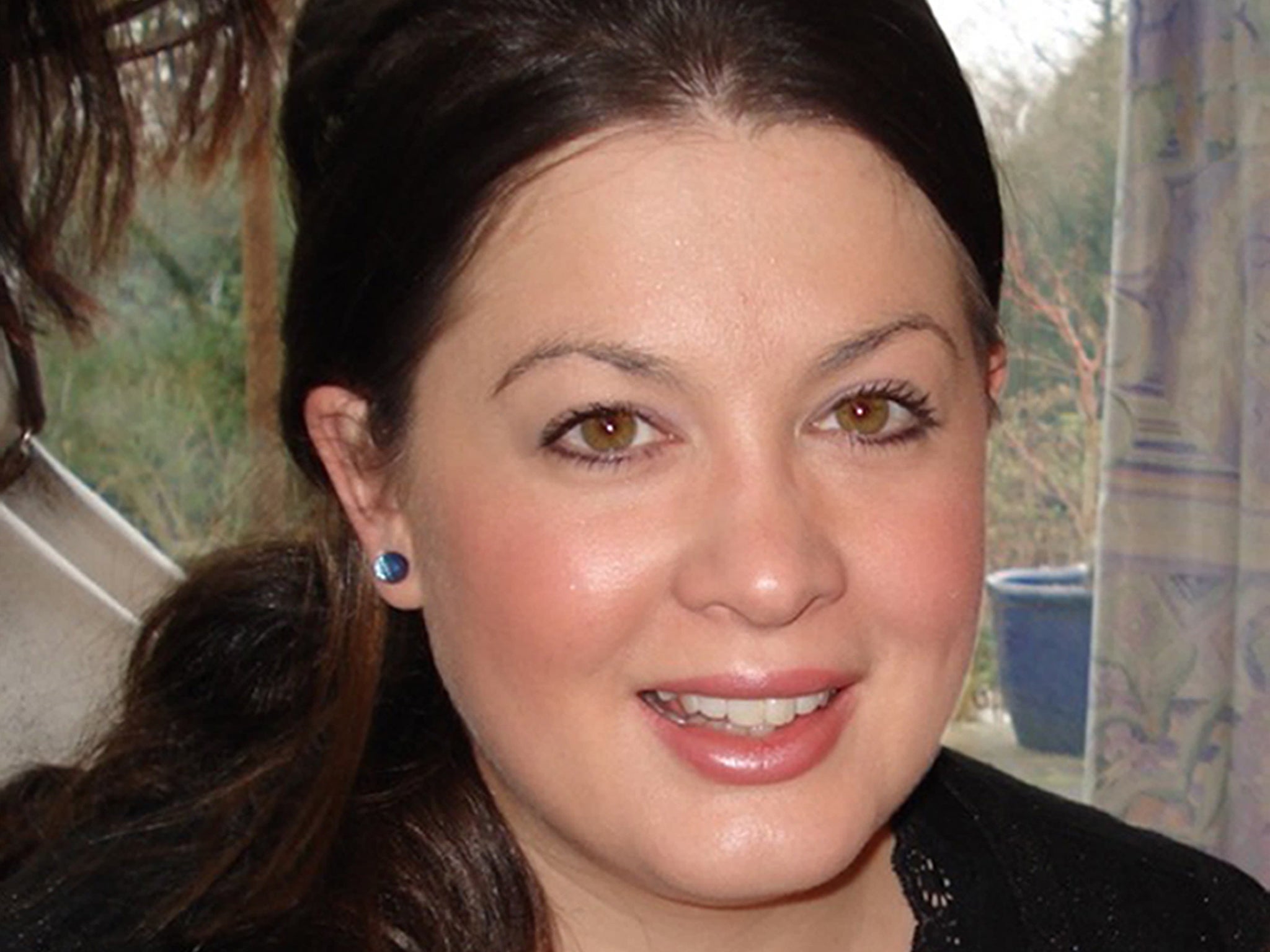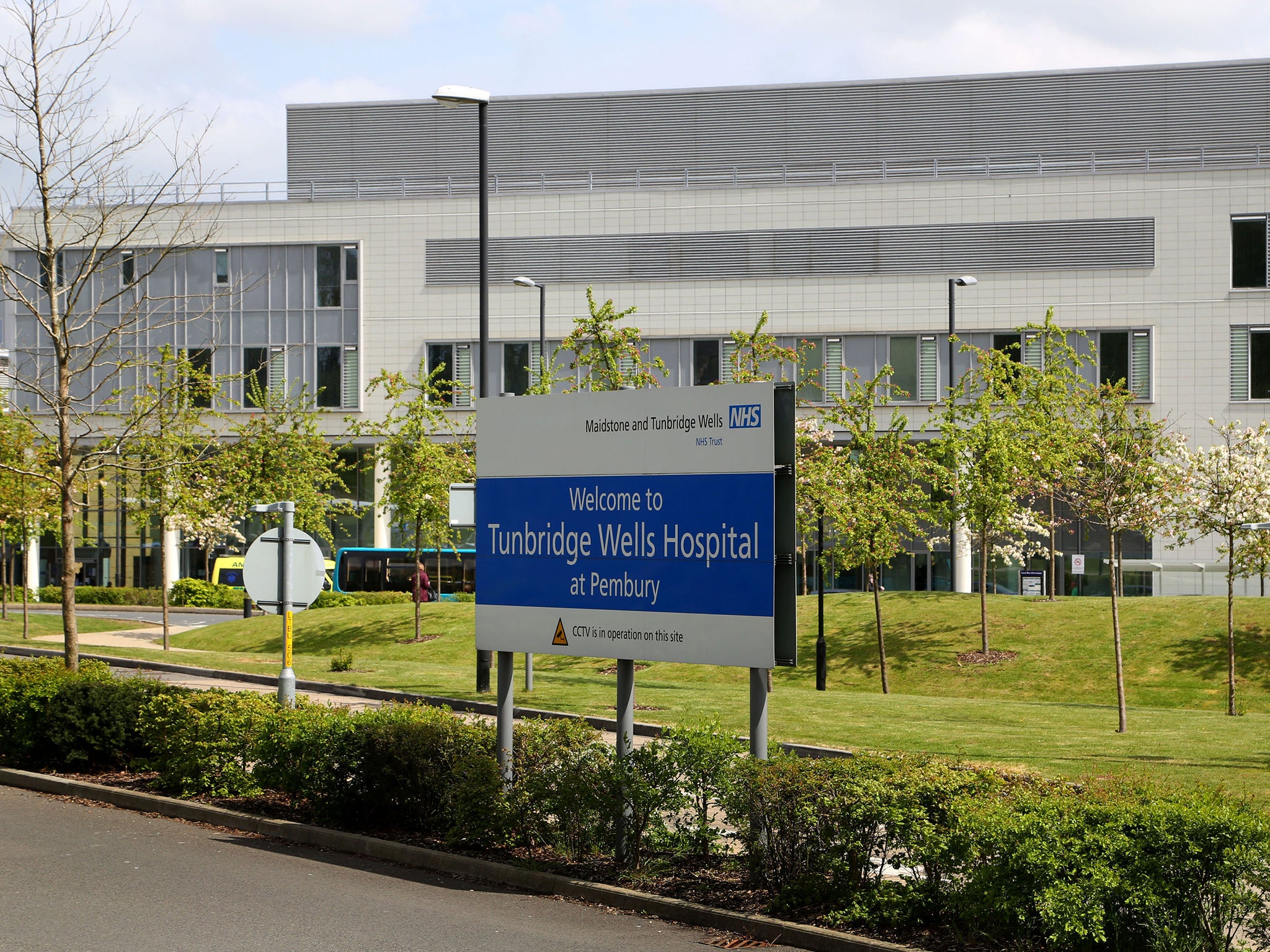Frances Cappuccini: Hospital blamed for death of young mother just hours after having baby
Senior Coroner says Caesarean section was not carried out with enough care

The death of a young mother just hours after she gave birth to her second son was a result of “failures, inadequate diagnosis and treatment” at the hospital caring for her, a coroner has said.
Frances Cappuccini, 30, died at Tunbridge Wells Hospital in Pembury, Kent, shortly after giving birth to her son, Giacomo, by Caesarean section.
The school teacher suffered heavy bleeding and was anaesthetised, but went into cardiac arrest and died at 4.20pm on 9 October, 2012.
The inquest at Gravesend Old Town Hall in Kent heard that Ms Cappuccini lost more than two litres (around four pints) of blood after the C-section.
She was subsequently operated on for a postpartum haemorrhage, but never woke up from the anaesthetic.
The inquest criticised the care given to her, including a piece of placenta that was left in her womb.
Senior Coroner Roger Hatch said the Caesarean section was not carried out with enough care and that checks should have been made to ensure nothing was missed.
He added: “The result of this failure led directly to the subsequent series of events which tragically led to the death of Frances.”
Ms Cappuccini’s husband Tom was in court to hear Mr Hatch deliver his conclusions at the end of the 10-day inquest.
Speaking on behalf of the family afterwards, solicitor Kate Rohde said: "Frankie was a wonderful wife, mother, daughter and sister. She was bubbly, intelligent, beautiful, loving and much loved.
“Failures of Maidstone and Tunbridge Wells NHS Trust and those employed by the Trust cost Frankie her life. Nothing can heal that pain.
“At least today, after over four years, the truth is acknowledged.”
The trust offered its “deepest sympathies” to Ms Cappuccini’s family and said it recognised it had “fallen short” in areas of her care.
It said: “Patient safety remains of paramount importance to the Trust.
“The Trust has, however, recognised from the start that there were aspects of Frances’ care that fell short of the standards that the Trust would expect and we wish to once again sincerely apologise to the family for this.”
As a result of her death it has brought in changes to improve patient safety, it said, and promised to “carefully consider all of the evidence heard at the inquest to ensure that any necessary changes which have not already been made are fully addressed.”

The inquest heard that Ms Cappuccini had been terrified of having her second child because of difficulties during the birth of her first son and had chosen to have an elective Caesarean birth on 10 October.
But she went into labour two days before she was due to be admitted to Tunbridge Wells Hospital, and was in labour for around 12 hours before finally having the Caesarean procedure and giving birth to Giacomo at 8.28am on 9 October.
It was suggested she may have been pressured into having a natural birth, but Mr Hatch dismissed this claim in his conclusions.
After the birth she began to bleed heavily and was rushed into theatre for emergency surgery, before eventually going into cardiac arrest less than seven hours after her son was born, dying at 4.20pm.
The inquest heard that a small piece of placenta was left inside Ms Cappuccini’s uterus, which Dr Dib Datta, a consultant obstetrician and gynaecologist brought in to provide an incident report on the case, called a “fundamental failure of care”, and also said note-taking during her treatment was inadequate.
Mr Hatch also criticised the managing of Ms Cappuccini’s haemorrhage – during which she lost 2.3 litres (more than four pints) of blood – noting that there was no fluid replacement plan in place.
Doctors missed symptoms of sepsis and possibly a kidney injury, and the coroner said that the premature removal of a breathing tube and its subsequent reinsertion also contributed to the escalating emergency situation.
And Mr Hatch said anaesthetist Dr Nadeem Azeez, who had the main responsibility for Ms Cappuccini’s care and has since returned to his native Pakistan, should have been supervised better after being involved in a similar situation before.
Press Association
Join our commenting forum
Join thought-provoking conversations, follow other Independent readers and see their replies
Comments
Bookmark popover
Removed from bookmarks